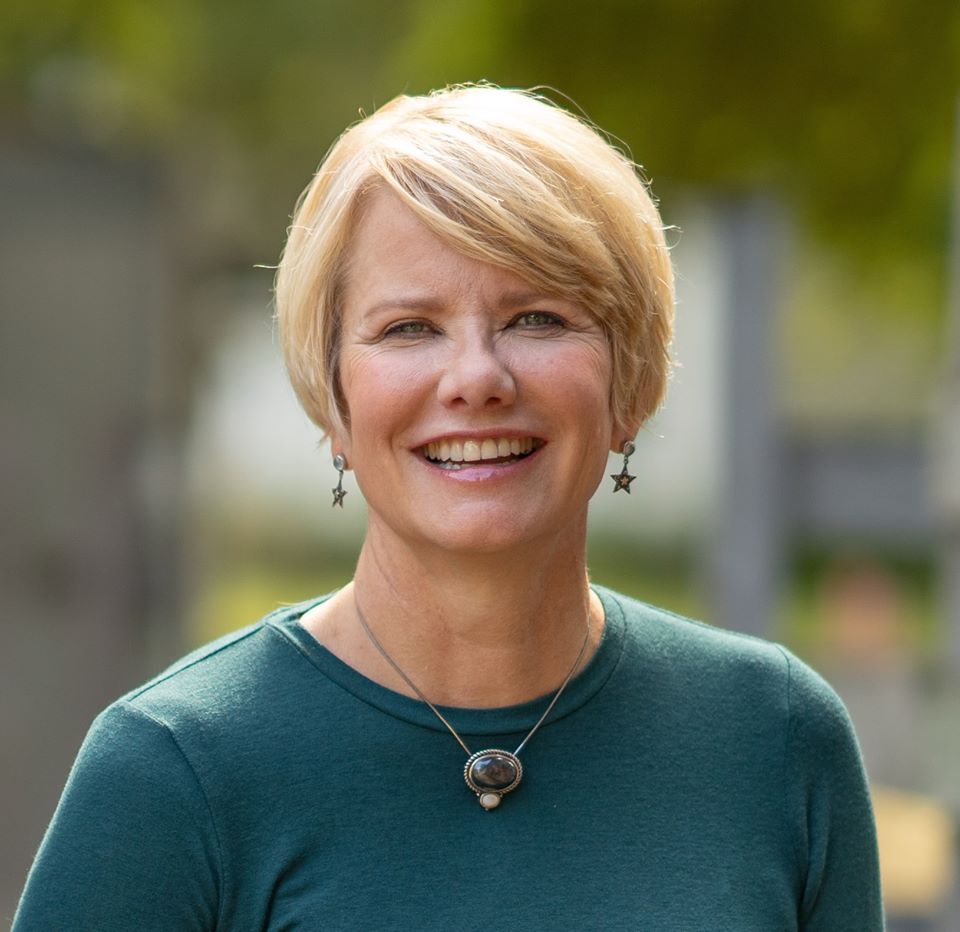But first, why do endorsements, anyway?
If newspapers are objective, why do you recommend candidates?
Newspapers don’t endorse candidates. Editorial boards do. The editorial board is separate from the newsroom. It is made up of opinion journalists with wide-ranging expertise whose consensus opinions and recommendations represent the voice of the institution — defined as the board members, their editor and the publisher. We do it as a service to our readers and to our democracy, which cannot flourish without an informed citizenry. For many busy people, researching each candidate isn’t possible. Rather than turn to partisan slates, some with pay-to-play motivations, we offer an alternative: informed candidate recommendations from nonpartisan journalists informed by facts, borne of careful analysis.[…]
What’s our process?
General elections always involve hundreds of hours of screening, writing and editing to ensure trustworthy recommendations that readers can access readily and even take to the polls. The pandemic has forced a few changes. For congressional and local top races, we’re conducting Zoom interviews with all who accept our invitations. For many other races, we’ve conducted one-on-one interviews. In most races, lead writers for each research, conduct outside interviews and background candidates before making recommendations to the full board, which reaches a consensus.Consensus isn’t always easy, especially when parties have failed to draw qualified candidates. Still, voters must vote, so we feel we must decide. When recommending someone we have reservations about, we’ll explain why to readers, same as we do when there are multiple excellent candidates.
Sometimes, an extra level of focus and expertise is needed to make the right call. As in past years, we’ve enlisted the help of retired longtime journalists in the 20 local judicial races. Mary Flood and Jeff Franks research and background candidates and then make recommendations for the board to consider.
Do we only endorse candidates who agree with us?
No. While we look favorably upon candidates whose values mirror our basic commitments to responsible spending, economic growth, strong public schools, improving health and protecting the environment, we often endorse candidates who don’t share our opinions on more contentious issues. To better serve voters in a diverse array of districts, we prioritize broader expectations of elected leaders: experience, willingness to work across the aisle, knowledge of issues, strong sense of ethics, fit with the district and general viability of the candidacy. For judges, fairness, competence and temperament are also strong considerations and, at times, the ideological diversity of the court as a whole. We give weight to incumbency, especially if it means seniority benefiting constituents, but we also scrutinize incumbents’ records on effectiveness, leadership, constituent services and ability to keep promises to voters.Whether readers agree with our ultimate choices or not, we hope the facts, observations and analysis in each written editorial recommendation serves as a helpful tool in voters’ own research and decision-making.
I appreciate the Chron’s efforts and I find their process to be useful and valuable, even though I (sometimes very strenuously) disagree with some of their selections. Honestly, this is more of an academic exercise for me in an election where there’s no doubt about who’s getting my votes, but it is of great value to me in other contexts. It is good to have some reasonably objective and process-oriented sources for the races where the decision is truly hard.
Anyway, on to the endorsements. We start statewide with the Railroad Commissioner’s race and an endorsement for Chrysta Castaneda.
Texas and Houston depend mightily on a thriving oil and gas industry, and that’s why it’s so important that the Railroad Commission of Texas be led by experienced, capable commissioners.
Fortunately, as an engineer and a lawyer, Democrat Chrysta Castañeda has the combination of knowledge and experience to help the RRC shepherd the crucial industry through one of the most challenging economies in decades.
As the founding law partner of the Castañeda Firm, which focuses on oil and gas litigation, she also understands the importance of crafting and enforcing regulations to protect the state’s environment.
That is why we recommend Castañeda, 57, in the statewide Railroad Commission race in the Nov. 3 election. If elected, she would join two Republican commissioners who, like her opponent, can be counted on to give the industry’s needs top billing over environmental concerns. What’s really needed is a balance between helping the industry thrive and minimizing its harmful impacts.
[…]
While [Republican candidate Jim] Wright also would bring experience to the job, it would be solely from the industry side. Texas needs at least one member of the Railroad Commission who takes to heart both the mandate that the commission promote the oil and gas industry and its charge to safeguard the water and air Texans drink or breathe.
Wright has some other issues, which the Chron does not delve into. With Presidential-level polling showing a very tight race, the other statewides are being seen as tossups this year. Castaneda may draw some crossover support if she can get enough of a message out. You can listen to my interview with her here if you haven’t yet.
Next, Michelle Palmer for SBOE.
Long-time history teacher Michelle Palmer was troubled when the Texas State Board of Education approved a social studies curriculum that describes Moses as an influence on the Founding Fathers.
The Aldine ISD teacher saw the 2018 decision as a particularly egregious example of the board incorporating historical inaccuracies into textbooks and curricula used to teach 5.4 million Texas public school students.
“Moses was not much of an influence on Thomas Jefferson. He was not much of an influence on many of the Founding Fathers,” Palmer told the editorial board. “I find it very troubling that they have that as a standard that is supposed to be taught to our 13- and 14-year-old eighth graders.”
Even more troubling: It was part of a pattern for the 15-member state board of education, which is more often guided by conservative ideology than by good curriculum design.
That history motivated Palmer, 50, to run for the position currently held by Chair Donna Bahorich, R-Houston, who is not seeking re-election.
“As a board member, I would listen to the experts,” said Palmer, a Democrat.
That sounds basic, and it should be. But too many on the current board have refused to do so. That is why we are recommending Palmer for SBOE Position 6. The state board of education has responsibilities critical for the education of Texas children: setting curriculum standards, adopting textbooks and other instructional materials for public schools, overseeing the Texas Permanent School Fund and reviewing charter school applications.
We’re all familiar with the clown show that has been the SBOE. To be fair, it has gotten somewhat less bad in recent years, thanks in large part to the eviction of Don McLeroy from its ranks. There’s still plenty of room for improvement, and adding Michelle Palmer would be a step in that direction. My primary interview with Palmer is here.
Finally, there’s Natali Hurtado for HD126.
In a repeat of the 2018 race for state House District 126, Democrat Natali Hurtado is facing off against Republican Sam Harless.
Two years ago, we recommended Harless for this seat based in large part on the Republican’s wise and politically brave support for expanding Medicaid and his contempt for the unscrupulous far-right activist group Empower Texans.
Unfortunately, Harless has backed away from Medicaid expansion at a time when the COVID-19 pandemic has made access to health care more important than ever. In a recent screening with the editorial board, he said he looked forward to a debate about expansion and expected it would happen someday. But he would not express support outright.
He also voted against a 2019 amendment that would have directed the Texas Health and Human Services Commission to seek a federal waiver to expand Medicaid in the state. That vote just happened to earn a green check mark from Empower Texans.
As our state battles COVID-19, Harless has appeared at campaign events without a mask and taken issue with Harris County Judge Lina Hidalgo’s mask order. Those actions show a troubling tendency to ignore science and turn a public health crisis into a partisan issue.
All this led us to take a fresh look at Hurtado. We like what we see.
You can read the rest for the affirmative case for Hurtado. She’s got a compelling biography, and actually means it when she says she supports Medicaid expansion in Texas. HD126 is on the target list for Dems this year, though not as high up as HDs 134 and 138. It’s looking like a competitive race, and an Election Day that includes a Dem win in HD126 almost certainly means a Democratic House.
The Chron also endorsed Republican Rep. Dan Huberty in a non-competitive race for HD127. More to come as they run ’em.




I don’t think there is anyone remotely Republican or conservative on that editorial board. Most Republicans view the Chronicle as just another Democrat endorsing group. Even when in the past they have endorsed Republican judicial incumbents they went out of their way to heap praise on the Democrat challenger, signalling their true preferences. Many Republican strategists advise candidate to skip the interviews, which the editorial board uses to engage in opposition research, picking out unflattering quotes or details to further support their Democrat endorsees.
Is it that the Ed Board is fishing for unflattering quotes? … or that the GOP candidates can’t help but say crazy things?